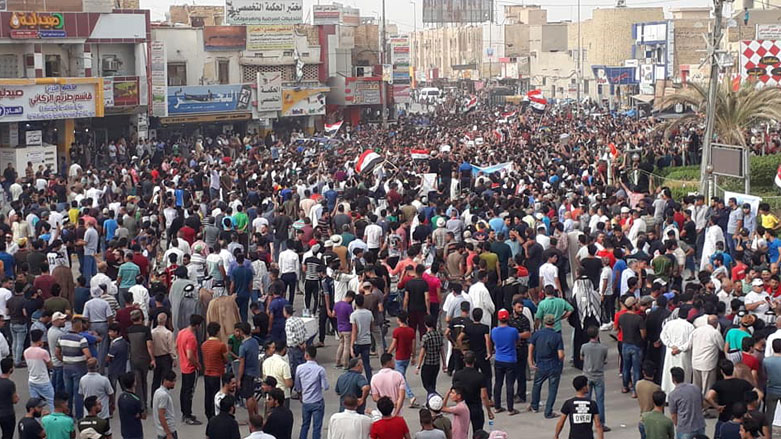US supports investigation into lethal response to Iraqi protests
WASHINGTON DC (Kurdistan24) – We are “certainly aware” of the report that Human Rights Watch (HRW) issued on Tuesday, condemning Baghdad’s use of “excessive and unnecessary lethal force” against protestors, State Department Spokesperson Heather Nauert told journalists later that day, as she replied to a question from Kurdistan 24.
“It’s something that we’re watching carefully,” she continued. “Our understanding is that the Iraqi government is conducting an investigation,” and “that is something that we would certainly support.”
On Tuesday, Nauert re-affirmed an earlier statement supporting “the right of the Iraqi people to peacefully protest,” while she noted that Baghdad has said it would “protect the security of both public and private property,” a position the US also apparently backs.
HRW’s report was especially critical of Iraq’s Interior Ministry and the Badr Organization for their heavy-handed suppression of the protests. The Iranian-backed Badr Organization is headed by Hadi al-Ameri, a close ally of Tehran, who finished second in Iraq’s May 12 elections and who may well emerge as Iraq’s next prime minister.
Nauert, however, declined to characterize some parts of the Iraqi Security Forces, like the Badr Organization, as more thuggish than others.
She also appeared to walk back Secretary of State Mike Pompeo’s full-throated critique of the Iranian regime, which he delivered Sunday evening. Speaking at the Ronald Reagan Presidential Library, Pompeo appeared close to calling for the regime’s overthrow.
However, on Tuesday, Nauert, who travels with the Secretary and was with him in California on Sunday, insisted “the only thing we want” from Tehran “is a change in behavior.”
President Donald Trump also seemed to back down from the bellicose stance he had taken on Sunday night, when he tweeted—in capital letters—to Iranian President Hassan Rouhani, “Never ever threaten the United States again, or you will suffer consequences the likes of which few throughout history have ever suffered before.”
Trump’s tweet was prompted by Rouhani’s remarks earlier that day that Americans "must understand that war with Iran is the mother of all wars and peace with Iran is the mother of all peace.”
On Tuesday, however, addressing a convention in Kansas City of the Veterans of Foreign Wars, Trump declared, “I withdrew the United States from the horrible one-sided Iran nuclear deal. And Iran is not the same country anymore.”
“But we’re ready to make a real deal,” Trump added, “not the deal that was done by the previous administration, which was a disaster.”
Trump’s position toward Iran, thus, appears to resemble closely his stance toward North Korea. Initially, he spoke in bellicose terms toward Pyongyang, threatening “fire and fury” and deriding the North Korean president as “little rocket man.” However, it was not long before the two leaders held a cordial summit in Singapore.
Analysts disagree on whether the US or North Korea got more out of the Singapore summit. And even if the US did prevail, there are questions as to whether the same negotiating tactic would work with Iran. Presumably, that will become clearer in the coming months.

